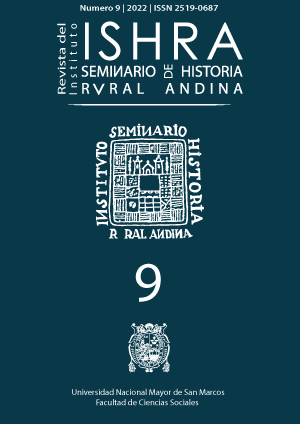The liberal political reform. El Educador Popular and the religious controversy in Arequipa for its educational proposal (1874)
DOI:
https://doi.org/10.15381/ishra.n9.24584Keywords:
Arequipa, Liberalism, Education Reform, Secularization, Jose Maria MasiáAbstract
This article aims to analyze the scope and consequences of the arrival and dissemination in Peru of El Educador Popular, an educational manual edited by the Peruvian educator José Arnaldo Márquez in the United States. This manual would constitute an important instrument of the Pardo government, used to disseminate new knowledge and educational methods. The main consequence of the arrival of this manual was the opposition of conservative sectors, who led protests in the city of Arequipa. The figure of the Spanish priest José Maria Masiá stands out, who was the main speaker of the uprising. By way of conclusion, this work aims to demonstrate that the resistance of Peruvian conservatism was due to the different ideas that the manuals provided, linked to liberalism. The main contribution of these manuals was to bring scientific knowledge such as geography or mathematics to students, something that would detach them from traditional religious teachings. This distance from religion led to a process of secularization, an aspect that is developed in the article.
Downloads
Downloads
Published
Issue
Section
License
Copyright (c) 2022 Santiago Alonso Agüero Palomino

This work is licensed under a Creative Commons Attribution 4.0 International License.
AUTHORS RETAIN THEIR RIGHTS:
a. Authors retain their trade mark rights and patent, and also on any process or procedure described in the article.
b. Authors retain their right to share, copy, distribute, perform and publicly communicate their article (eg, to place their article in an institutional repository or publish it in a book), with an acknowledgment of its initial publication in the ISHRA, Revista del Instituto Seminario de Historia Rural Andina.
c. Authors retain theirs right to make a subsequent publication of their work, to use the article or any part thereof (eg a compilation of his papers, lecture notes, thesis, or a book), always indicating the source of publication (the originator of the work, journal, volume, number and date).






